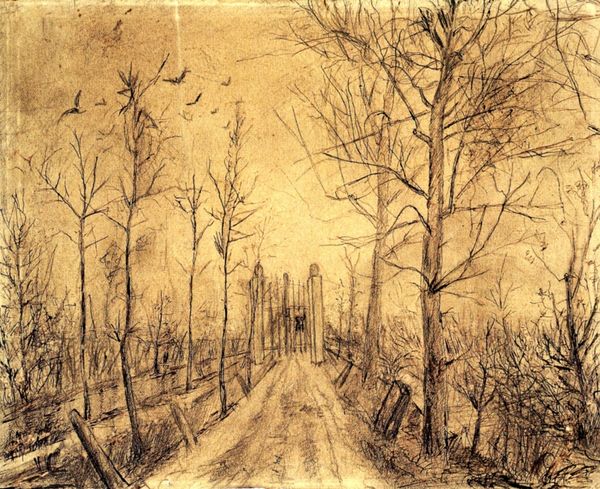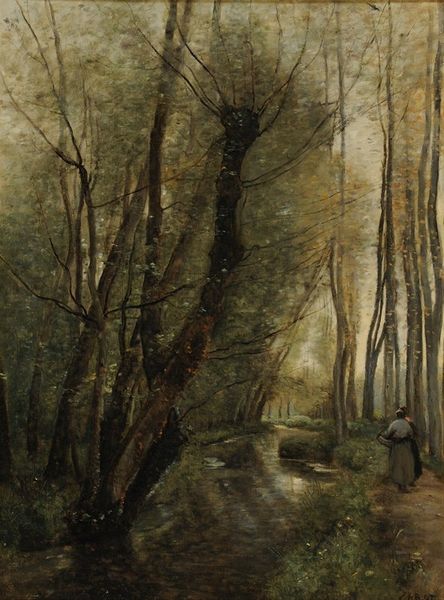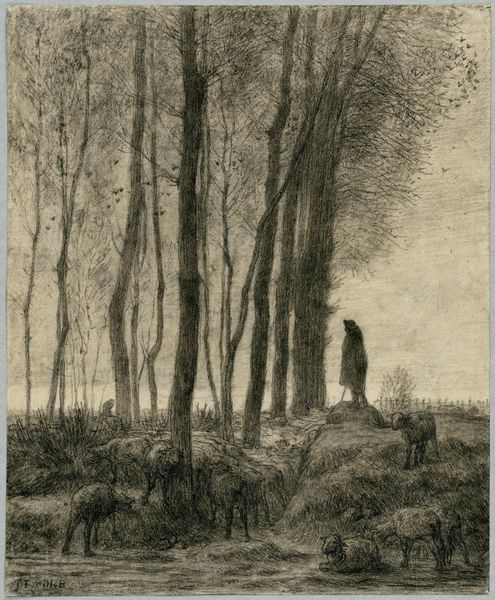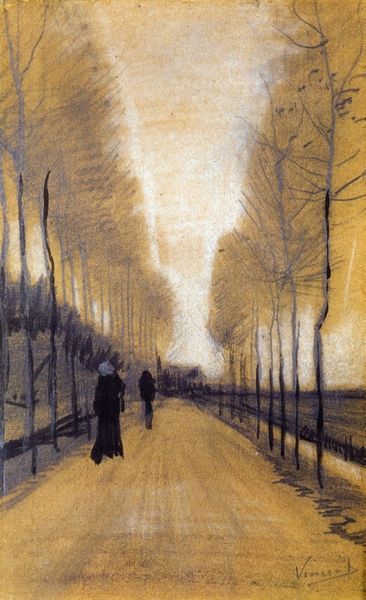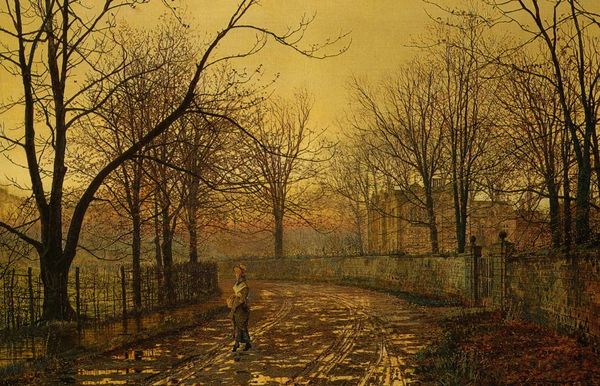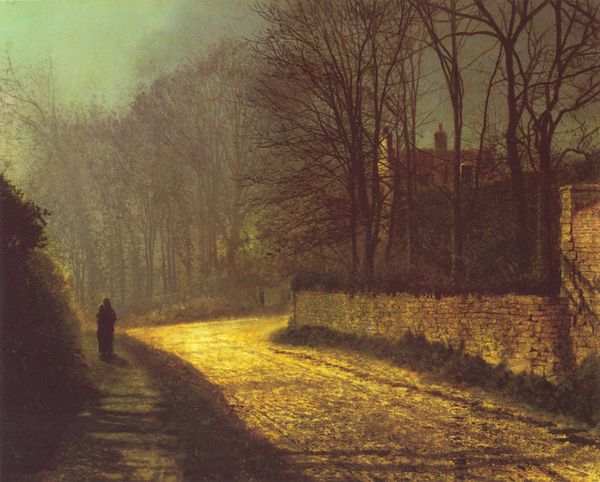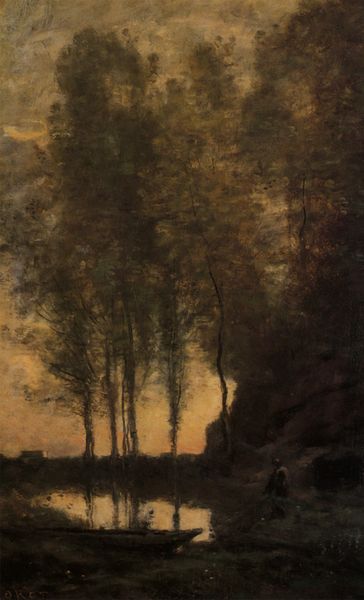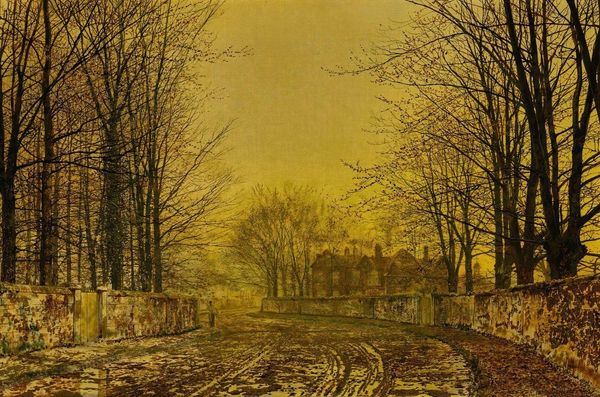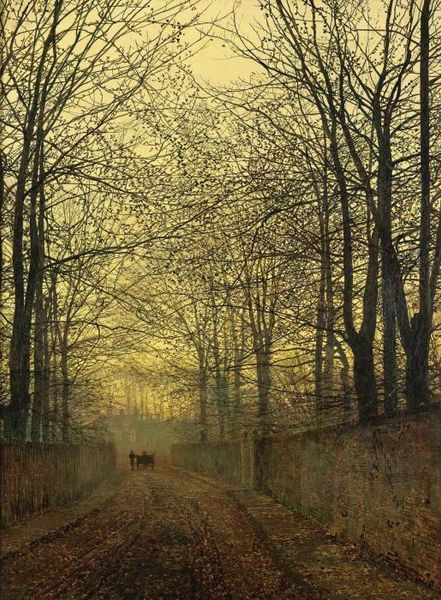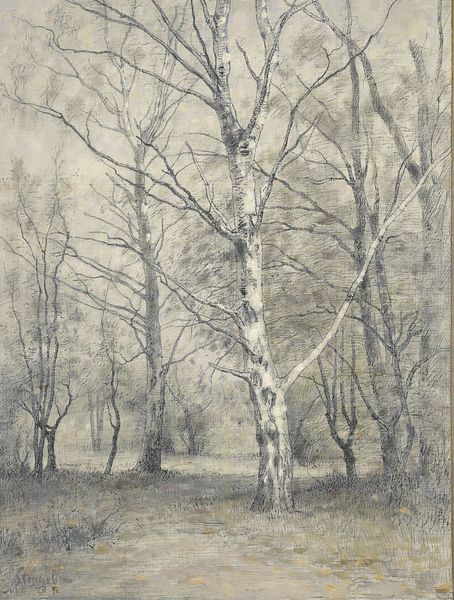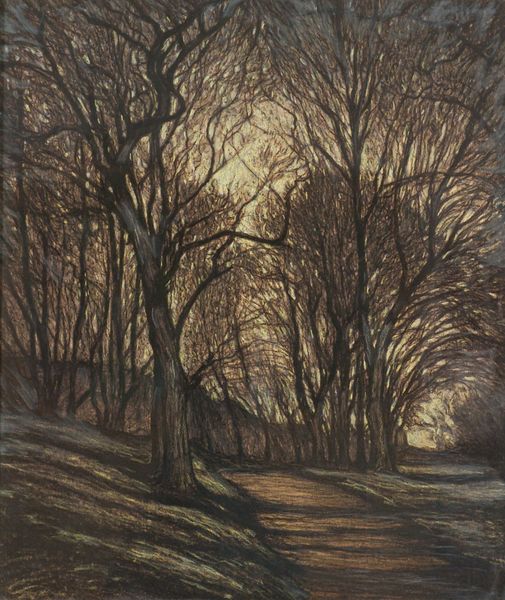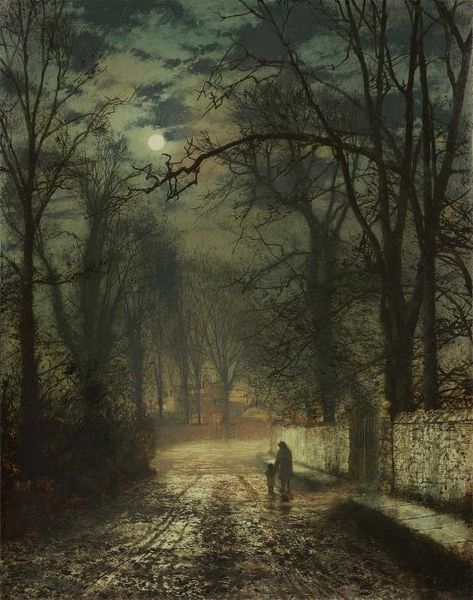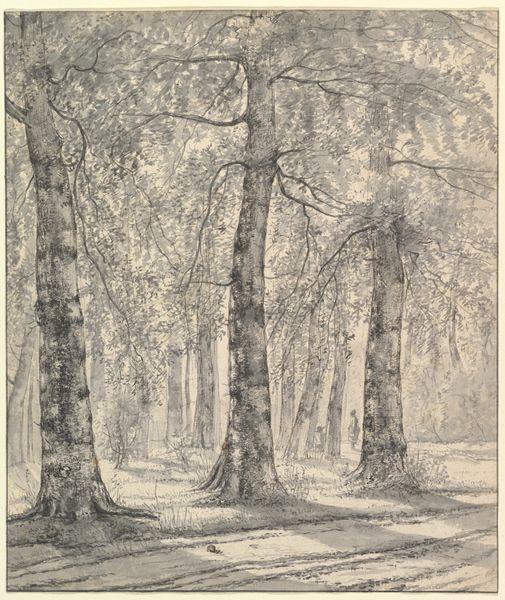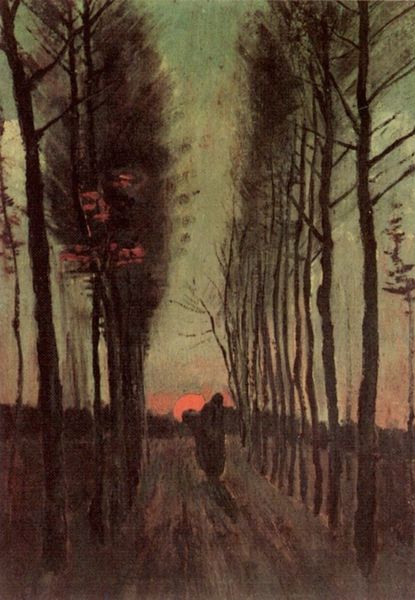
drawing, paper, pencil, pen
#
portrait
#
tree
#
drawing
#
garden
#
sky
#
landscape
#
paper
#
forest
#
plant
#
pencil
#
natural-landscape
#
men
#
line
#
park
#
pen
#
post-impressionism
#
realism
Copyright: Public domain
Editor: Here we have Vincent van Gogh's "Avenue of Poplars," created in 1884 using pen, pencil, and ink on paper. There's a solitary figure walking down this long avenue of trees, and it all feels rather lonely, doesn't it? How do you interpret this work? Curator: It's striking how Van Gogh uses line to evoke a sense of isolation. Think about the 1880s; industrialization was rapidly transforming landscapes and displacing rural communities. Is this solitary figure perhaps a representation of that displacement? How might we view this image as a commentary on the changing relationship between humanity and the natural world? Editor: I never considered it that way, as a commentary. I focused more on the artist himself and what he might have been feeling. Curator: That's understandable. The personal and the political are never truly separate, especially for marginalized groups. Consider, whose voices were being heard and whose were being silenced during this period? This avenue, rendered with such stark lines, feels like a pathway through the silences, doesn’t it? How can the formal elements enhance this sense of marginalization? Editor: I see what you mean. The figure is small, almost overwhelmed by the trees, giving him a vulnerable presence in an unforgiving landscape. I am interested in seeing more of Van Gogh's art now with this in mind! Curator: Exactly. By exploring art with this critical lens, we challenge ourselves to look beyond aesthetics. Editor: Thank you, that makes me consider art within a broader context now!
Comments
No comments
Be the first to comment and join the conversation on the ultimate creative platform.
